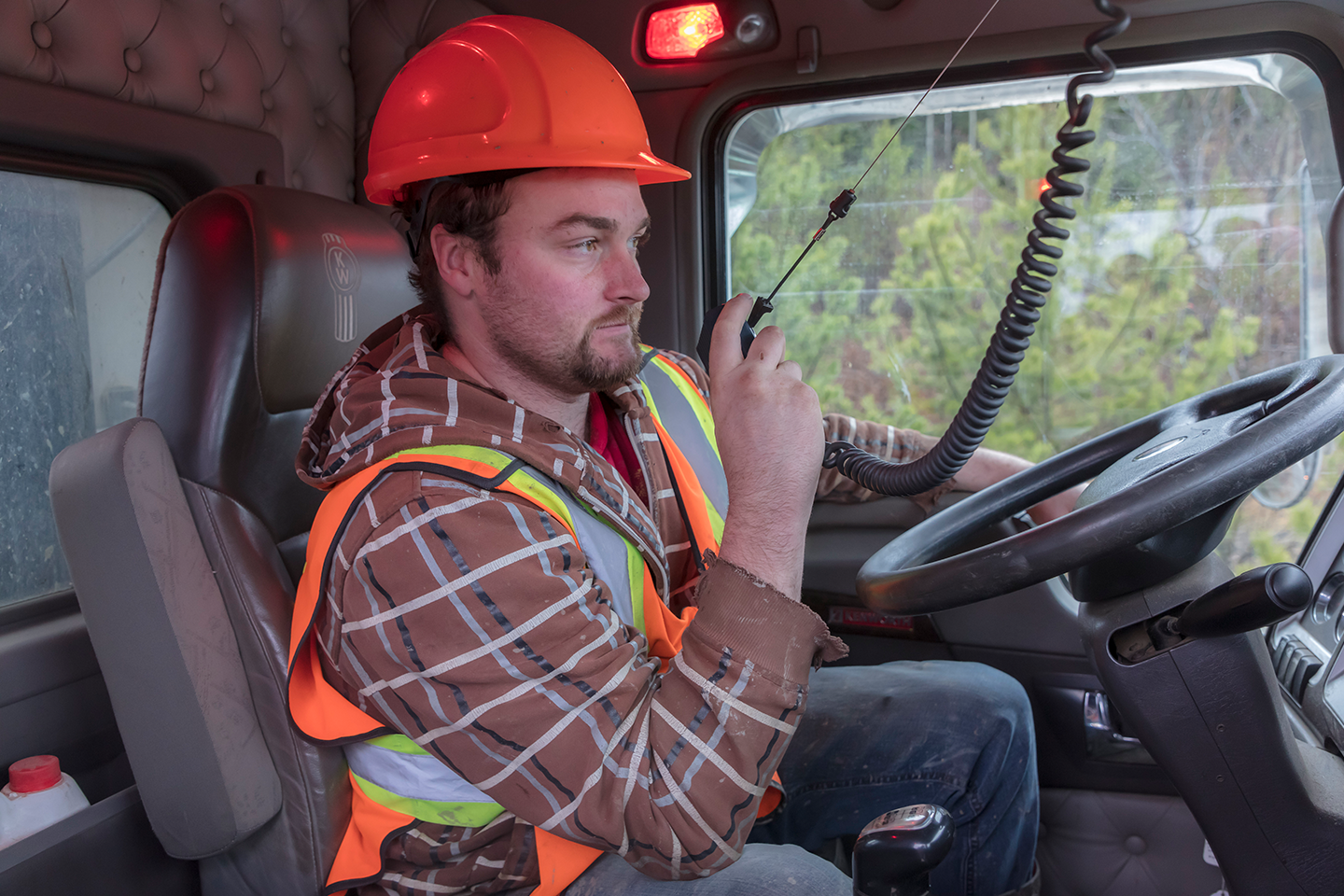Log Specific Contracting: Putting the COVID-19 safety plan in place
Travelling in separate vehicles reduces risk of exposure
Maintaining physical distance on the job can be easier for some forestry operators because workers are usually spread out. Problems could crop up, though, when getting crews to the site in the first place.
"The biggest challenge is our transportation," says Norm Powers, owner of Log Specific Contracting, a "stump to dump" firm based in Chemainus on Vancouver Island. Before COVID-19, crews travelled to and from work together. Now? "I have separate pickups," he explains.
One person per vehicle is one option to reduce exposure to the virus, says Ron Judd, a supervisor with WorkSafeBC’s Prevention Services. When people have to travel in the same vehicle, employers are using other controls, such as putting plastic barriers up between passengers or "in a crew cab, they’ll have one person sit in the driver’s seat and one sit on the far side in the back," he says.
Judd advises workers to take an added precaution when travelling in the same vehicle can’t be avoided: "Always try to sit in the same seat and go in the same door so you’re not cross-contaminating."
Even though many sites dedicate heavy equipment to one operator, there’s a risk of contamination there too. "Our biggest concern is the surfaces that we touch," says Norm’s wife, Barb, who drafted the company’s COVID-19 safety plan by using WorkSafeBC’s website. Each machine and truck has a disinfectant spray bottle and shop towels "so everybody can wipe down their points of contact."
For a wash station, Log Specific uses a five-pound water jug, a pump soap container, and paper towels. Hand washing instructions printed from the Centre for Disease Control website are attached to the jug. The company also provides gloves and cap shields, a new face shield that clips onto a hard hat or visor.
Norm Powers says he emphasizes COVID-19 protocols during safety meetings. "I still keep bringing up reminders so that we’re all on the same page. People’s mindset and their attitude — that’s a big challenge. You can’t become complacent."
Read about what other employers have been doing to implement the COVID-19 safety plan in WorkSafe Magazine.

